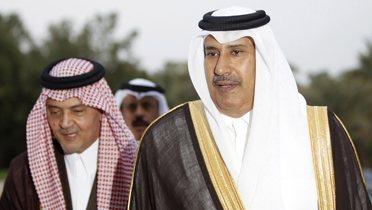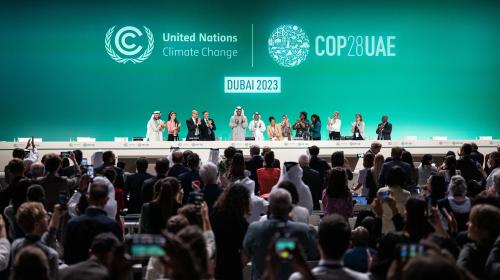Executive Summary
Over the next twenty years the countries of the Gulf Cooperation Council (GCC) are likely to experience some of the fastest economic and energy-consumption growth rates anywhere in the world. Already almost exclusively dependent on hydrocarbons for their energy supply, the GCC member states face increasing environmental and economic costs from continued heavy reliance on oil and gas in their power-generation and industrial sectors. Several of the GCC countries have asserted their interest in diversifying their economies away from the export of raw materials and energy-intensive industry in order to achieve sustainable long-term economic growth and security. The extent to which such a diversification is likely to occur in the short-term should not be overestimated. The principal source of foreign-exchange earnings for the GCC countries is through rent on oil and gas exports and the exploitation of a comparative advantage in low-cost energy-intensive industry. Any large-scale switch away from energy-intensive economic activity is likely to act, at least in the short-term, to the detriment of the GCC countries’ competitiveness and terms of trade. However, there are opportunities for the countries of the GCC to achieve the parallel objectives of reduced carbon emissions, reduced domestic consumption of valuable oil and gas resources, and increased economic diversity without a major structural change to their economies and with significant potential net benefits both in terms of carbon-reduction and economic performance. These opportunities lie in the development and adoption of technologies and improved management systems in the areas of alternative energy, energy efficiency, and carbon capture and sequestration (CCS).
In the field of alternative and renewable energy, the GCC countries have the potential to take greater advantage of their proven wind, solar and geothermal resource base in their power generation mixes. While there are several well-funded academic and research institutions in the region working on the development of technologies in these areas, there is large scope for the acceleration of renewable energy penetration through the implementation of policy goals, formalized networks and regional coordination. In addition to the potential for increased integration of established alternative energy technologies, the countries of the GCC have an opportunity to develop new renewable technology niches in applications suited for their climatic conditions, such as algal biofuels and dust-resistant solar photovoltaics. This strategic approach to alternative energy development could provide an important source of diversification for the region’s economies and a source of competitive advantage in a carbonconstrained global economy.
In CCS, the GCC countries have both the means and the motivation to be a leader in the development of a technology that will play a major part in achieving global emissions-reduction targets. With huge projected increases in their power sector capacities—most of which, notwithstanding the progress made on alternative energy sources, are likely to be met with natural gas—the countries in the region have the opportunity to serve as a platform for global development of carboncapture technology. With large amounts of available investment capital, economies optimized for energy-intensive industry, and a near-term economic incentive for the use of captured carbon- dioxide through enhanced oil and gas recovery, the GCC countries have a unique opportunity to invest in “first-mover” research and development to accelerate the commercialization of CCS.
In the area of energy efficiency, the countries of the GCC have great potential to institute technologies and systems that improve their performance at the firm and consumer levels. Through the development and implementation of efficiency standards for buildings and appliances, they have the ability to reduce their carbon-emissions profile at low—or even negative—net cost. They also have the ability to apply international best practice in energy efficiency and related management systems through partnership initiatives with the private sector. Any effort to seriously address the challenge of emissions reduction and increased adoption of non-carbon energy sources in the power-generation mix in the GCC must acknowledge the significant potential for pricing reform. Given the fragility of the current political situation in the region, however, it is unlikely that any major implementation of fiscal instruments for demand-side reduction is on the horizon. Instead, GCC energy planners have an opportunity to focus on greater investment in the development of domestic and regional research networks, the creation of standards and goals, and increased collaboration with the private sector for transfer of best practice, and the commercialization of technologies likely to be a source of competitive advantage.
At the regional level, the countries of the GCC face many of the most pressing challenges of the global economy in the 21st century: a selfinterested need to reduce carbon emissions while meeting increased energy demand and a desire to develop new technologies that will provide a source of long-term economic growth. Through adoption of policies that encourage the role of alternative energy, energy efficiency, and carbon capture and sequestration, the GCC can meet its own environmental and economic objectives and remain at the center of the energy economy for decades to come.






